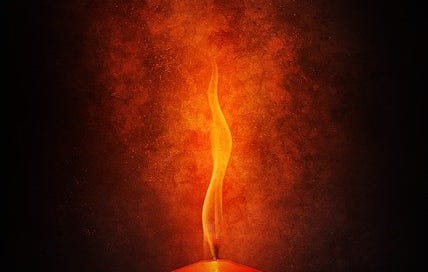Creating the Webbd Wheel: Shadows
In which the lights go out ...
I’ve been studying emotional intelligence for more than seven years. Emotional intelligence is the ability to be aware of, express, and control our emotions, and manage relationships effectively. It’s the most important work I’ve ever done. Sadly, rather than being the cornerstone of my early education, I didn’t come to it until I was 50.
Part of emotional intelligence involves understanding the way people work. It’s no secret our culture is filled with dysfunctional, traumatized, disordered, and mentally ill people; emotional intelligence teaches us to recognize patterns of behavior and how to manage them, both in ourselves and others.
As we master emotional intelligence, our understanding of our past and present relationships changes. We can look back and identify dynamics and truths we were unable to see before, or saw and were unable to express, interpret, or address.
We draw closer to ourselves as we more clearly understand our needs, choices, and motivations. We examine our shame and guilt in a new light. As we soften toward ourselves, we soften toward others who have been or are now in our lives. We learn better ways in which to cope with our feelings and support others with theirs.
The light of emotional intelligence casts shadows, as all light does. Shadow defines light. The two are inextricably bound together. For every spark of light in me, there is also a shadow. Shadows need not be negative or horrible or hateful. We cannot amputate ourselves or others from psychological shadows, for we need them. They help us learn, survive, and become resilient. Sometimes our shadow aspects are the strongest, most courageous parts of ourselves.
The Webbd Wheel series is full of characters with shadows. Few are unequivocally “good” or “bad.” I don’t believe in that kind of either/or thinking. People are complicated, confused, contradictory, and they change.
The character Raoul is a deeply disordered man. He’s an amalgam of personality disorders, particularly narcissism, which I’ve been studying for several years and have been intimately involved with.
The most key thing I’ve learned about personality disorder is, though such people are painfully destructive to both themselves and others, they are also tragic. Generally, they lack the insight and internal resource to help themselves or allow anyone else to help them. Their lives are filled with broken connection, sharp edges, and desperate needs. They are hungry, empty, and chronically insecure.
Some of my characters are mostly shadow. In those cases, I have imagined their experience from the inside out in an effort to remind the reader the most broken and destructive among us may still be worthy of compassion, even as we refuse to tolerate their behavior. Understanding why we and others behave in certain ways is not the same as condoning it.
Life is a confusing business, and we’re all chipped, worn, and stained. Most of us have been shaped painfully by outside forces we had no control over. Many of us struggle with scars and unhealed wounds. Yet some of the most broken among us shine the brightest, perhaps because of their shadows. A person like Raoul, unable to balance psychological light and shadow, is doomed. He has nothing but his unending hunger for light. He lives and dies in darkness, because no matter how much external light he consumes, it can’t nourish him. In his case, the lights are always out. The night never ends in dawn.
Such people are impotent; they have the will to kill and destroy, but no power to create. Culturally, we believe oppression, control, wealth, and political and social position are power, but I strongly disagree. Dealing death; sowing discord; breaking down trust, respect, and social systems; dividing connections, are all the activities of a weak, frightened person without a light to guide them.
Destruction is not the ultimate power.
Creation is, and our shadows, properly managed, can help us create.
(This essay was published with post #12 of The Hanged Man.)



